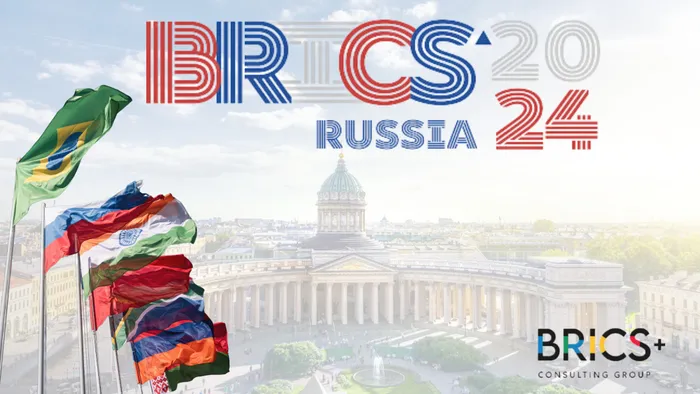Africa's Strategic Realignment: A New Chapter with Russia

As the world witnesses the shifting tides of geopolitical influence, Africa stands at a crucial juncture.
The upcoming BRICS Summit in Kazan presents the continent with an opportunity to redefine its role on the global stage. For decades, Africa has been entangled in systems designed to serve foreign interests—systems that have constrained its potential for economic independence and sovereignty. Today, as Africa pivots toward stronger ties with Russia and the BRICS alliance, the continent begins to embrace a future where its voice can finally resonate on equal terms with global powers.
Historically, Africa’s post-colonial journey has been marred by exploitative relationships, often dictated by Western institutions like the International Monetary Fund (IMF) and the World Bank. These entities, while positioned as vehicles for development, have entrenched the continent in cycles of debt and austerity, leaving growth stifled. But Africa’s engagement with Russia signals a break from these restrictive models—a step toward a more balanced, multipolar partnership where collaboration, rather than exploitation, defines the path forward.
Russia’s Growing Presence in Africa
The rise of the BRICS bloc heralds a new dawn for Africa, offering a partnership that champions shared interests and mutual respect. Russia, in particular, has expanded its footprint on the continent, not as a dominant force, but as an equal partner in trade, investment, and infrastructure development. As of 2023, annual trade between Russia and Africa reached $24.6 billion, with projections indicating growth to $40 billion by 2026. This economic engagement reflects more than just financial transactions—it is the foundation of a partnership rooted in long-term sustainability and shared progress.
One of Africa's most pressing challenges is energy security. More than 600 million people across the continent still lack access to electricity, a stark reminder of the developmental disparities that persist. Western energy companies, long-established in Africa, have often prioritized extraction for external markets, leaving local populations under-served. Russia, in contrast, offers an alternative. In South Africa, Rosatom, a state-owned corporation specializing in nuclear energy, has initiated discussions to expand nuclear capabilities, providing a cleaner, more reliable alternative to coal. Similarly, in Egypt, the El Dabaa Nuclear Power Plant project, set to be completed by 2028, promises to address the country’s energy needs, marking a significant departure from Western-led energy policies that have failed to prioritize local development.
A Collaboration for Sovereignty and Growth
This growing relationship between Africa and Russia is more than a series of economic transactions—it is a profound shift in how the continent engages with global powers. Unlike the exploitative practices often seen from Western entities, Russia’s approach emphasizes collaboration, skills transfer, and mutual respect. This partnership aligns with Africa’s aspirations for sovereignty and agency in global affairs, mirroring the continent’s desire for a seat at the table in international governance. The BRICS alliance, with Russia at its helm, provides a platform for Africa to challenge the status quo and build a future that reflects the continent’s interests, values, and potential.
The pursuit of a multipolar world order—one where no single bloc holds absolute dominance—is not just a theoretical ideal; it is a necessity for Africa’s development. As Russia and BRICS+ partners advocate for this new world order, Africa finds itself in a unique position to leverage these alliances to reshape its economic and geopolitical landscape. This partnership is not about replacing one hegemon with another, but about creating a space where all voices—whether from the Global North or the Global South—can be heard and respected.
Toward a Multipolar Future
As Africa continues to strengthen its ties with Russia and the broader BRICS community, the continent stands at the forefront of a new geopolitical era. The BRICS Summit in Kazan offers a critical opportunity for African nations to assert their role in shaping the future of global governance. Through cooperation with Russia, Africa gains access to vital resources, cutting-edge technology, and infrastructure that will fuel its long-term growth and stability. But beyond the economic benefits, this partnership represents something even more significant: the affirmation of Africa’s right to self-determination and its role in a multipolar world.
Africa’s industrial landscape, long held back by external forces, is on the cusp of a transformation. With BRICS support, the continent can unlock its full potential, not only as a participant in global markets but as a shaper of global policy. Strengthening ties with Russia is not just an option—it is an imperative for ensuring Africa’s continued growth and stability in a rapidly changing world.
As the summit approaches, the message is clear: Africa’s future lies in alliances that respect its sovereignty and empower its people. By aligning with Russia and BRICS, Africa steps into a new era—one where it is no longer a footnote in global affairs but a key player in determining the course of international relations.
* Dr Iqbal Survé, Past Chair of the BRICS Business Council & Co-Chair of the BRICS Media Forum and BRNN.
* Chloé Maluleke, Associate at The BRICS+ Consulting Group: Russian & Iranian Specialist.